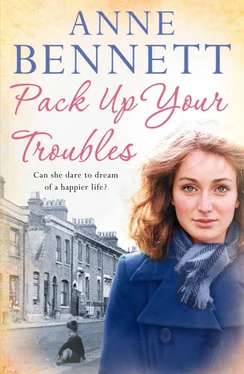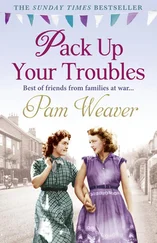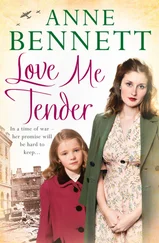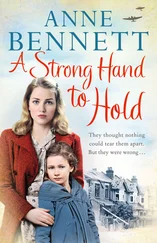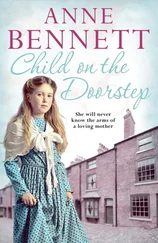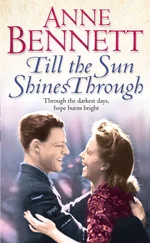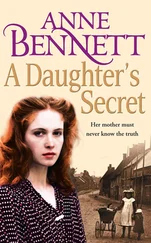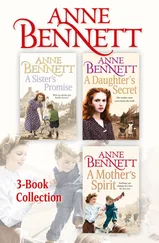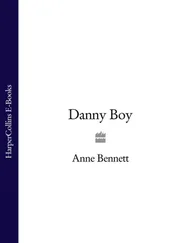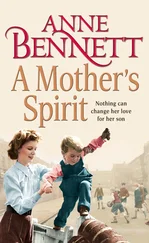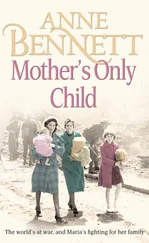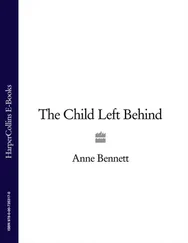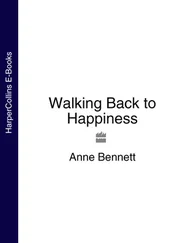Maeve boarded with what seemed like thousands of other people crowding on to the gangplank, her case bumping against her knees. Once on board, she made her way on to the deck and, putting her case beside her, she held tightly to the rail as she watched the shores of Ireland fade into the distance and then disappear altogether. She felt quite suddenly unexpectedly desolate and a little frightened. The overcast leaden grey skies belied the fact that it was early April and although it was midmorning the light was as poor as dusk, which didn’t help Maeve’s mood. Nor did the roll of the ship and the churning of her stomach.
She leant over the side, overcome suddenly by nausea, and vomited all she’d eaten that morning into the white-fringed grey water crashing and foaming against the ferry’s sides. She continued to retch over and over and she realised she wasn’t the only one.
When eventually her nausea was over and as she wiped her mouth with a handkerchief she became aware of a dumpy little woman dressed in black watching her. The rain came then, not soft spring rain, but sharp shafts that stung Maeve’s face and soaked her coat in minutes.
‘Come away into the bar,’ the woman told her, lifting her case as if it weighed nothing at all. ‘You’ll freeze to death out here.’
Maeve allowed herself to be led indoors, where she was met by a cacophony of people talking, laughing, shouting and quarrelling, and here and there she heard snatches of songs, the laments of the emigrant Irish that brought tears to her eyes.
‘Tch tch, that won’t do,’ the woman said. ‘You need a brandy to buck you up. I’ll send my Sean to get you one.’
Maeve’s protests were waved aside and the woman escorted her to where a man also dressed in black sat on a suitcase just a little way from the bar.
‘Sit down,’ the woman commanded and, as the seats were all occupied, Maeve upended her case and sat on that.
The woman introduced herself as Minnie O’Rourke, and her husband, whom she dispatched for the drinks, as Sean. They were returning from a funeral for Sean’s parents, who’d died within days of one another on the family farm in Galway. The farm now belonged to Sean, Minnie O’Rourke explained, though his three sisters ran the place. Maeve, having told her new acquaintance her own name, smiled politely and hoped the brandy would ease the cramps in her stomach.
The bar reminded her of Donovan’s in her home town, with the tobacco stench that stung Maeve’s eyes and hung like a blue fog over the room, together with the familiar smell of Guinness. Sean O’Rourke returned with two glasses of the black drink with the creamy white top for himself and his wife, and a large brandy in a balloon glass for Maeve.
Maeve looked at it fearfully. Never had she had any strong drink, except the odd sip of her father’s Guinness, which he’d allowed her at Christmas and which she’d not liked. The brandy caught in her throat and caused her to cough and splutter, and Minnie O’Rourke patted her back and with a smile told her to treat the drink with respect and sip it.
And Maeve did sip it, grimacing at the taste as one might at foul-smelling medicine that promises to do some good, but she did like the warm glow that the brandy induced.
‘That’s brought the colour back to your cheeks anyway,’ Minnie O’Rourke told her. ‘Where are you bound for?’
‘Birmingham,’ Maeve said. ‘To my uncle’s place.’
‘Well, isn’t that good news?’ Minnie exclaimed. ‘We’re going to Birmingham too. We have a fine house in Erdington. You’d best come along with us. It’s desperate altogether travelling on your own.’
And Maeve was glad to have their company. It might stop her feeling fearful that she was making some dreadful mistake. She was also anxious to learn as much as she could about the city she was going to.
‘Are you having a holiday?’ Minnie asked.
‘No,’ Maeve said. ‘I’m staying there. My uncle has got me a job in a café, near a place called Aston Cross.’
‘My! You’re lucky,’ Minnie said, ‘for God knows, jobs are few and far between at the moment, with the slump after the war, you know?’ Without waiting for a reply she went on, ‘My Sean had to have his gaffer’s word that he’d have a job to go back to, or we wouldn’t have been able to go to the funeral at all. Even then we could only take three days. His sisters wanted him to take three or four weeks, but we daren’t, and he’s a skilled man. He works in the brass industry.’
Maeve made no reply to this, for she was suddenly unaccountably weary and her head swam with the unaccustomed brandy on her empty and very sore stomach.
‘Still and all, you have a job to go to, that’s something,’ Minnie went on.
‘He knows the owner of the place,’ Maeve said.
‘That would be the way of it, right enough,’ Minnie said. ‘As I always say, God’s good.’
Maeve opened her mouth to make some sort of reply, but all that came out was a large yawn.
‘My, my,’ said Minnie. ‘You’re dead beat, so you are, and no wonder after you being so sick and all. Lie yourself down across the cases and have a wee sleep, why don’t you?’
What a relief it was, Maeve found, to lay her swimming head down, even across the lumpy hard cases, and pull up her legs to ease the cramps and close her eyes to ease the throbbing pain in her head. In minutes she was fast asleep.
She slept till the ferry docked. The O’Rourkes shook her awake and took her in hand, and she shambled behind them in the damp rain-soaked air, pushing her case before her as people thronged the decks in the rush to embark. They were waved through the customs sheds and into the noisy station in Liverpool that was teeming with people. Not that Maeve saw much of it, for the train was in and the O’Rourkes, seasoned travellers that they were, steered Maeve quickly through the crowds and on to the train to make sure of a seat, and Maeve was glad they had when she saw many passengers filling the corridors later, sitting astride their cases.
She was glad that on dry land once more she was feeling much better and able to face the picnic her mother had packed with such loving care early that morning. She shared it with Sean and Minnie O’Rourke while she plied them with questions about the city she was to live in. And as the train chugged its way southwards, they told her of Birmingham’s cinemas and dance halls, which opened all year round. They described the music halls and the Bull Ring, a huge shopping centre where great entertainment could be had, they said, on a Saturday night. Maeve was no longer nervous; instead she was in a fever of excitement to get to her uncle’s house and begin her job. Then, she was sure, her life would take an up-turn.
When Maeve and the O’Rourkes finally alighted at New Street station, Maeve wondered if she’d ever find her uncle in such a loud and busy place. All around her was the noise of people. Porters pushing laden trolleys were yelling out warning to anyone in their way, and at a newsstand, a vendor shouted his wares, while beside her the gigantic train was giving little pants of steam, as if it were an untamed animal out of breath.
Her Uncle Michael told her afterwards he’d have recognised her anywhere from the one photograph she’d ever had taken, which she’d sent to him. He’d said the photo didn’t do her justice and he’d commented on how like his sister Annie Maeve was. He could remember how stunning his sister had been at Maeve’s age, and how she’d had the pick of the local suitors. He could see that Maeve had the same-shape face with the high cheekbones, blue eyes, straight nose and full mouth. They even had the same way of holding their heads and once had had the same-colour hair, but Maeve’s mother’s blonde locks were now peppered with grey. She wore it in a bun on the back of her neck and for the journey Maeve had copied her, feeling the style made her look more adult.
Читать дальше
